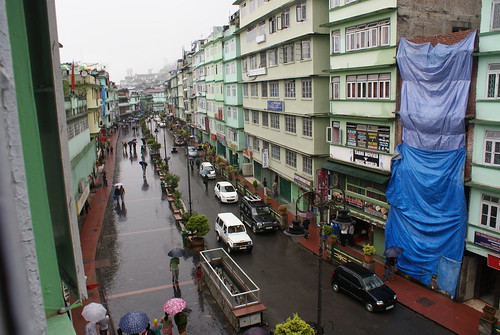Free TVs for votes, free fans for no votes, flip-flop politics and missing polity - there's little about recent politics that isn't greeted with cynicism or disgust.
At a recent debate on NDTV's We The People about an increasingly dysfunctional Parliament, one of the suggestions made to end the mammoth quibbles and get things done, was to allow MPs to vote on (most) policy matters independently.
The argument was that allowing an MP to vote against his party on a policy matter would enable him to better represent the interests of his immediate constituency. The electorate too would have something definite by which to judge the performance of their representative.
It's an idea that's almost perfect on paper.
In anything other than theory, it's terrifying.
The Election Commission of India allows a candidate to spend Rs. 25 lakh on his/her campaign for the General Election. A widely reported study by the Centre for Media Studies, however, suggests that as much as Rs.10,000 crore was spent during the 2009 elections (pdf), with "conservative estimates" putting the figure at Rs. 3 crore per candidate.
This picture definitely has a lobbyist waiting to make sure that the candidate turns into an MP, that too one with a valuable independent vote.
Yes, we have our Radias, the farm and fertilizer lobbies, but I'd hate to see it reach the hysteric proportions it is wont to.
At a time when corruption is the dirtiest word in the country, it was interesting to see something a little related to this discussion pan out on the other side of the globe. Lawrence Lessig, once free culture advocate and now anti-corruption crusader in Washington DC (and all-round awesome guy) talks to Jon Stewart.
Election vouchers? Hmm.
At a recent debate on NDTV's We The People about an increasingly dysfunctional Parliament, one of the suggestions made to end the mammoth quibbles and get things done, was to allow MPs to vote on (most) policy matters independently.
The argument was that allowing an MP to vote against his party on a policy matter would enable him to better represent the interests of his immediate constituency. The electorate too would have something definite by which to judge the performance of their representative.
It's an idea that's almost perfect on paper.
In anything other than theory, it's terrifying.
The Election Commission of India allows a candidate to spend Rs. 25 lakh on his/her campaign for the General Election. A widely reported study by the Centre for Media Studies, however, suggests that as much as Rs.10,000 crore was spent during the 2009 elections (pdf), with "conservative estimates" putting the figure at Rs. 3 crore per candidate.
This picture definitely has a lobbyist waiting to make sure that the candidate turns into an MP, that too one with a valuable independent vote.
Yes, we have our Radias, the farm and fertilizer lobbies, but I'd hate to see it reach the hysteric proportions it is wont to.
At a time when corruption is the dirtiest word in the country, it was interesting to see something a little related to this discussion pan out on the other side of the globe. Lawrence Lessig, once free culture advocate and now anti-corruption crusader in Washington DC (and all-round awesome guy) talks to Jon Stewart.
Election vouchers? Hmm.







